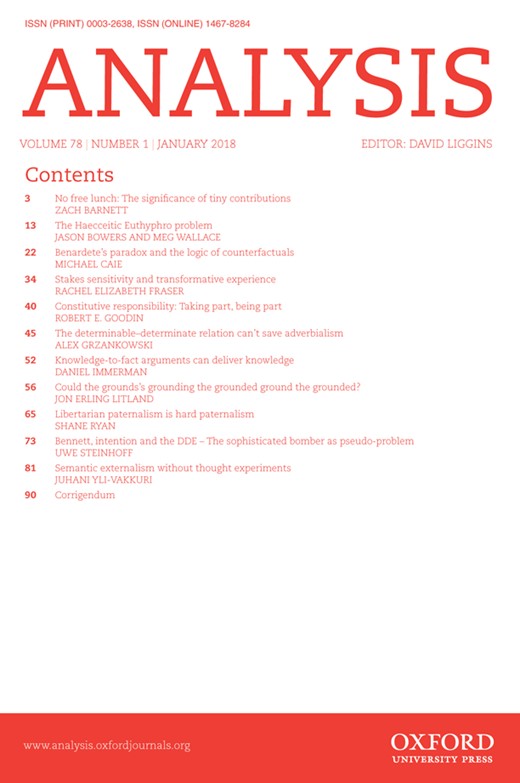-
Views
-
Cite
Cite
Juhani Yli-Vakkuri, Semantic externalism without thought experiments, Analysis, Volume 78, Issue 1, January 2018, Pages 81–89, https://doi.org/10.1093/analys/anx127
Close - Share Icon Share
Abstract
Externalism is the thesis that the contents of intentional states and speech acts are not determined by the way the subjects of those states or acts are internally. It is a widely accepted but not entirely uncontroversial thesis. Among such theses in philosophy, externalism is notable for owing the assent it commands almost entirely to thought experiments, especially to variants of Hilary Putnam's famous Twin Earth scenario. This paper presents a thought experiment-free argument for externalism. It shows that externalism is a deductive consequence of a pair of widely accepted principles whose relevance to the issue has hitherto gone unnoticed.




